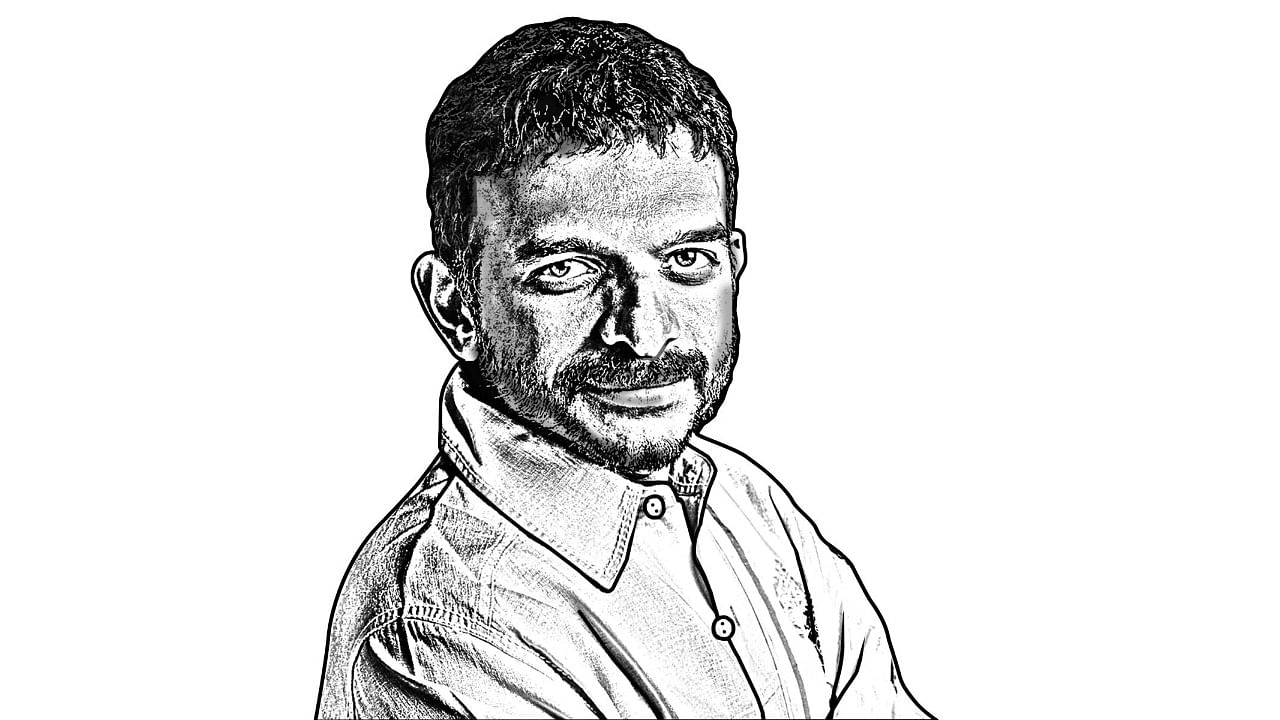
The elections in the five states are done: the BJP retained the four it was ruling while AAP clinched one in style. The reasons given for the results range from local issues, shift in voter attitudes, the power of the woman voter, the charisma of Modi, development, religious polarisation, free rations and cash transfers, to, specifically in Punjab, fatigue with the old establishment. On television channels, experts speak of different stages in voter behaviour in our democracy. Some believe that the BJP has constructed a new social vote-catching paradigm. Field enquiries and data are used to establish one truth or the other. As is the case with all such discussions, we get a glimpse of the truth when these varied reasonings are patched together. But each person holds on to the one that tallies with their preferred narrative.
But all these discussions begin with the premise of an independent choice. Independence, not in absolute terms but as an internalised state of being. There is a belief that, though we are all influenced and influenceable, we practice -- as a habit -- choice born from free will. I would argue that this is far from the truth. Our natural state, especially in this country, is un-free-ness. Let me clarify that my observation is an overarching suggestion that cuts across urban, rural, caste, gender and educational disparities. Politicians speak of the intelligent voter and the need to accept that the voters make choices that they recognise as beneficial for them. The choice is indeed made, but it is not free. Consequently, understanding of benefit is muddled.
The problem in making such an argument is its implied meaning. It seems to indicate that before the advent of Narendra Modi, we voted with at least more objectivity and lesser violence and that my present attitude stems from the fact that I do not subscribe to the politics of the current regime. On the contrary, exceptions aside, I do not think we have ever had the mental framework to think with liberty. This stems from the nature of our society. We are an inherently feudal culture built up of a staccato of castes, all entrenched in patriarchism. This model is established and confirmed through a network of exclusionary and inclusionary socio-cultural rituals. Economic and political strength and welfare are excavated from within this design.
When voter choices matched our understanding of a modern society, though we recognised the social divisions that were in operation we rationalised the choice because the result suited the story we wanted to tell. When the sway took another direction, we spoke of emotional and cultural manipulation and hate.
Unfortunately, it is time to acknowledge that we have always lived in a hateful society, and beautiful things that exist happen to despite this overriding fact. Electoral choices have rarely stemmed from the clarity we like to attribute to them. Development and financial wellbeing have limited impact on these choices. They may even work for one election, but the underbelly of all these movements is our disturbing social construct. Even after 75 years of independence, most of us think our elected representatives are doing us a favour when they do their job. We fall at their feet not out of respect but because of fear, much like we did to the zamindars of yore. This is our democratic reality.
Across this entire country, we have constructed an education system that ignored all our social warts. We have built our post-independence educational structure on top of pre-existing inequalities. This is not merely about lesson plans; the culture in our schools perpetuate social divisiveness and this has gone on for generations. The semantics and acts through which oppression and exclusion is practiced has undergone changes but that they are still actively functional cannot be denied. In such an environment, how are we to expect even a semblance of choice-making that is not fogged by fear, gratitude and othering? Ours is not a liberating education; it is feudal education wrapped in the packaging of job opportunity. Dignity, self-realisation, empowerment and self-determination are negotiations of convenience.
Within our school set-up exist the public school and the aspirational private schools. The unsaid divisions that this has perpetuated is casteism and classism. Moving away from public education to private schooling is the aspiration of all those who live under the weight of society. For those who feel entitled to private education, the outside world is dirty. Then among these are those who are extra-privileged due to exposure and economy who send their children to ‘alternative’ schools. This is the society we have built, and we expect democracy to work.
When all that students are taught are mindless rote-learning and marks-driven answer templates, democracy will remain a farce. We have done nothing to inculcate the spirit of our Constitution among the people. We do not know what it means to live in harmony, share with openness and realise that the wellbeing of our neighbour enriches our life. Fraternity and equality are just words that exist on a page that we call the Preamble. Justice is not even spoken about. India is a country where fairness is the birthright of a few. We were aghast when Modi asked us to focus on our ‘duties’ and forget about rights. Why are we surprised? We have let Article 51A remain in our Constitution knowing full well that we are a domineering, duty-bound society that needs to be liberated from that word by foregrounding rights.
It is time we liberals accept our utter failure. We assumed that democracy would just finally somehow work. We did little to make Indian democracy an everyday happening and watched from the wings as we slid down the slope to dystopia.